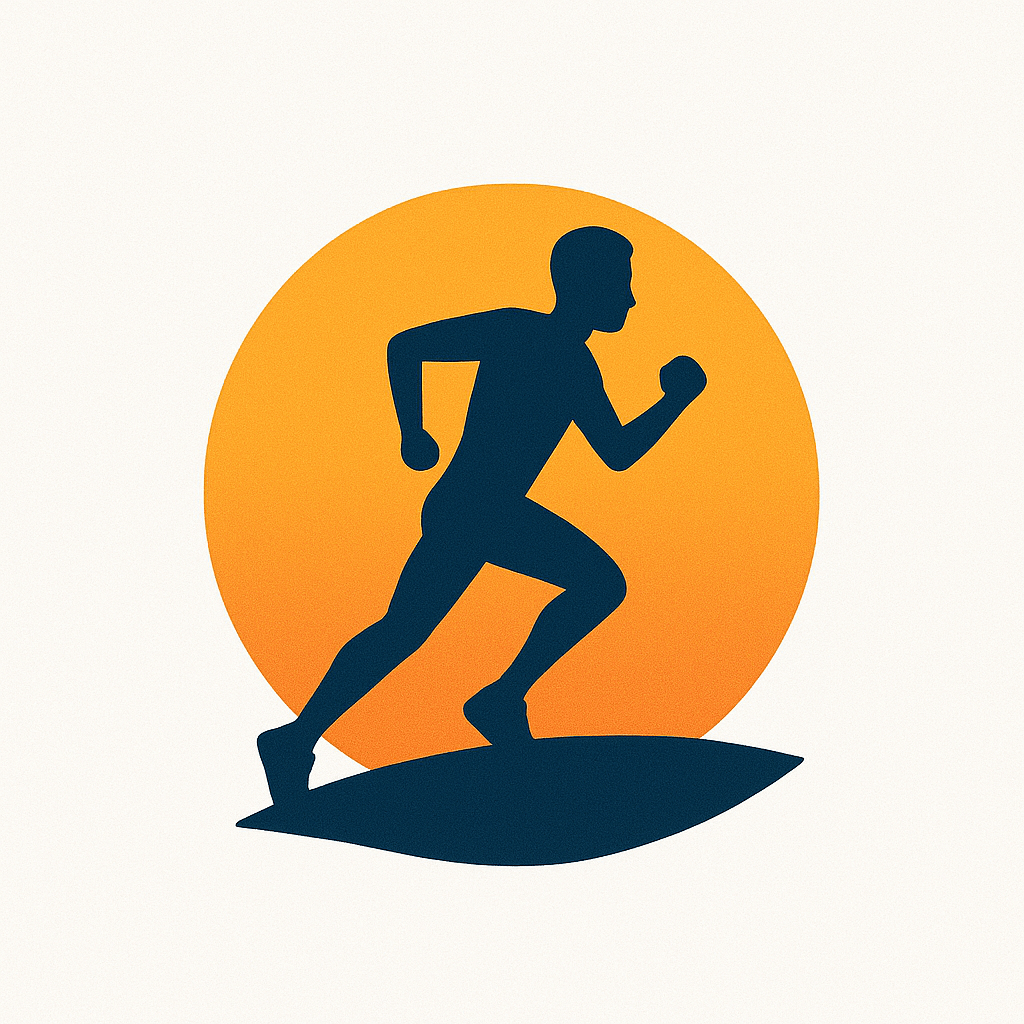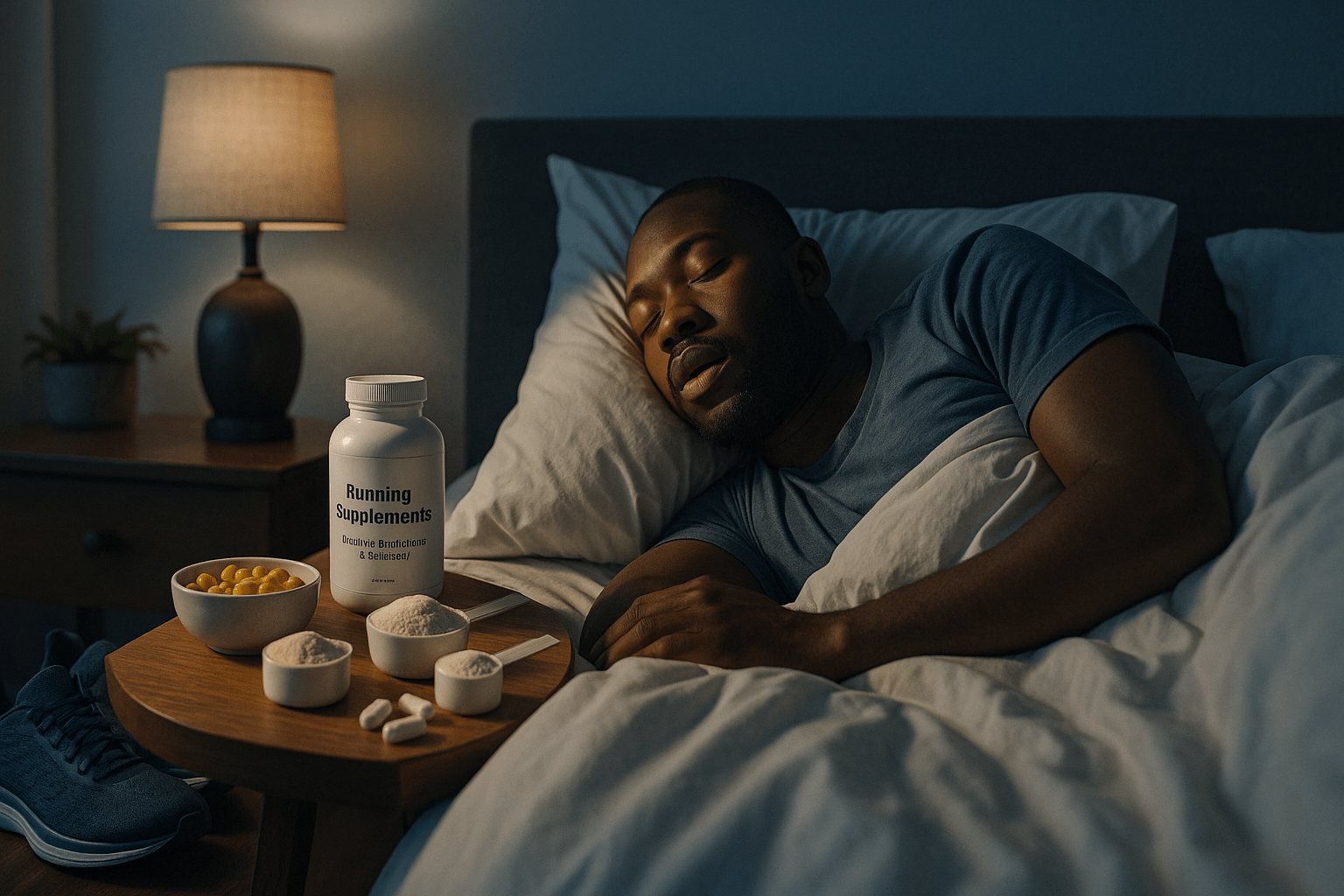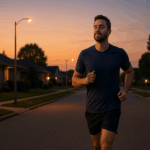Outrun Fatigue by Sleeping Smarter
You’re doing everything right. You’re following a training plan, hydrating, stretching, maybe even foam rolling. But you’re still waking up tired. Your legs feel heavy, your mind foggy, and your runs are sluggish.
What gives?
The answer might not be in your workouts—but in your bedroom.
Sleep is the most powerful, most overlooked recovery tool a runner can have. It’s free, it’s natural, and when optimized, it can unlock new levels of energy, speed, and resilience.
Let’s break down why sleep isn’t just important—it’s essential.
The Science of Sleep and Athletic Recovery
What Happens to Your Body When You Sleep
Sleep is not just a passive state of rest. While you sleep, your body goes into overdrive repairing muscle tissue, regulating hormones, and recharging your brain.
This is when growth hormone is released. This is when inflammation decreases. This is when mental clarity is restored.
Deep Sleep = Muscle Repair + Hormonal Reboot
Deep sleep—also known as slow-wave sleep—is when most of your physical recovery happens. It’s when muscles repair and rebuild. It’s when your body restores energy stores in the form of glycogen.
Meanwhile, REM sleep supports your mood, memory, and stress regulation—all key components for consistent training.
Sleep Deprivation’s Hidden Impact on Performance
Lack of sleep doesn’t just make you grumpy—it makes you slower, weaker, and more prone to injury.
Research shows that even mild sleep deprivation can:
- Reduce time to exhaustion
- Lower maximal strength
- Impair glucose metabolism
- Increase risk of overuse injuries
In short: You can’t out-train bad sleep.
Why Runners Can’t Afford to Skimp on Sleep
Injury Risk Skyrockets with Poor Sleep
A study on adolescent athletes found those who slept less than 8 hours per night were 1.7 times more likely to get injured than their well-rested peers. For adult runners, the risk still applies.
Your tissues need downtime to repair. Sleep is that downtime.
Slower Reaction Time, Weaker Stride, Less Motivation
Sleep affects coordination and neuromuscular control. When you’re tired, your stride becomes less efficient, your reflexes slow, and your motivation drops. That makes pushing through workouts—and avoiding obstacles on the trail—much harder.
Sleep and the Immune System: Staying Healthy, Running Strong
Good sleep strengthens your immune function. It helps you fight off the bugs that can derail training. One sleepless night? Not a big deal. Chronic short sleep? A recipe for missed miles.
How Much Sleep Do Runners Actually Need?
Most adults need 7–9 hours of sleep per night. But if you’re training intensely or running high mileage, you may need more—up to 10 hours, including naps.
Elite athletes like Usain Bolt and Serena Williams prioritize sleep like a workout. It’s part of their training.
The best rule? Listen to your body. If you’re constantly tired, irritable, or sore, more sleep might be the recovery tool you’re missing.
Tips to Improve Sleep Quality for Faster Recovery
Build a Sleep Routine Like You Build a Training Plan
Set a consistent bedtime and wake-up time—even on weekends. Establish a pre-sleep ritual: stretching, journaling, reading. Your brain loves consistency.
Cut Caffeine, Blue Light, and Overstimulation
Avoid caffeine after 2 p.m. Limit screens an hour before bed. And if you’re training hard late in the day, make time to wind down afterward.
Smart Supplements for Sleep (With a Reminder to Talk to a Doctor)
Some runners find melatonin or magnesium helpful for falling asleep faster. But supplements affect people differently. Always consult your doctor before trying any new supplement, especially if you’re on medication.
What to Do When You Can’t Sleep Before a Big Race
Pre-race nerves are real. If you sleep poorly the night before a race, don’t panic. Research shows your body can still perform well if you were well-rested in the nights leading up to it.
Focus on creating a calm environment, use calming techniques (like box breathing), and remember: one bad night won’t ruin you.
Real Runners, Real Results: The Sleep Edge
Meb Keflezighi, Olympic medalist and Boston Marathon champion, has spoken openly about prioritizing 8–10 hours of sleep during peak training.
Elite ultrarunner Courtney Dauwalter is known for her outlandish endurance—but even she acknowledges that “sleep is the best recovery tool out there.”
These are pros who train hard and recover harder.
Train Hard. Sleep Harder.
You train your legs. You fuel your body. But are you giving your mind and muscles the full rest they deserve?
Sleep is not lazy. It’s not a luxury. It’s your secret weapon.
So tonight, skip the late scroll. Dim the lights. Let your body recharge like the high-performance machine it is.
Your next great run begins when you close your eyes.






Leave a Reply